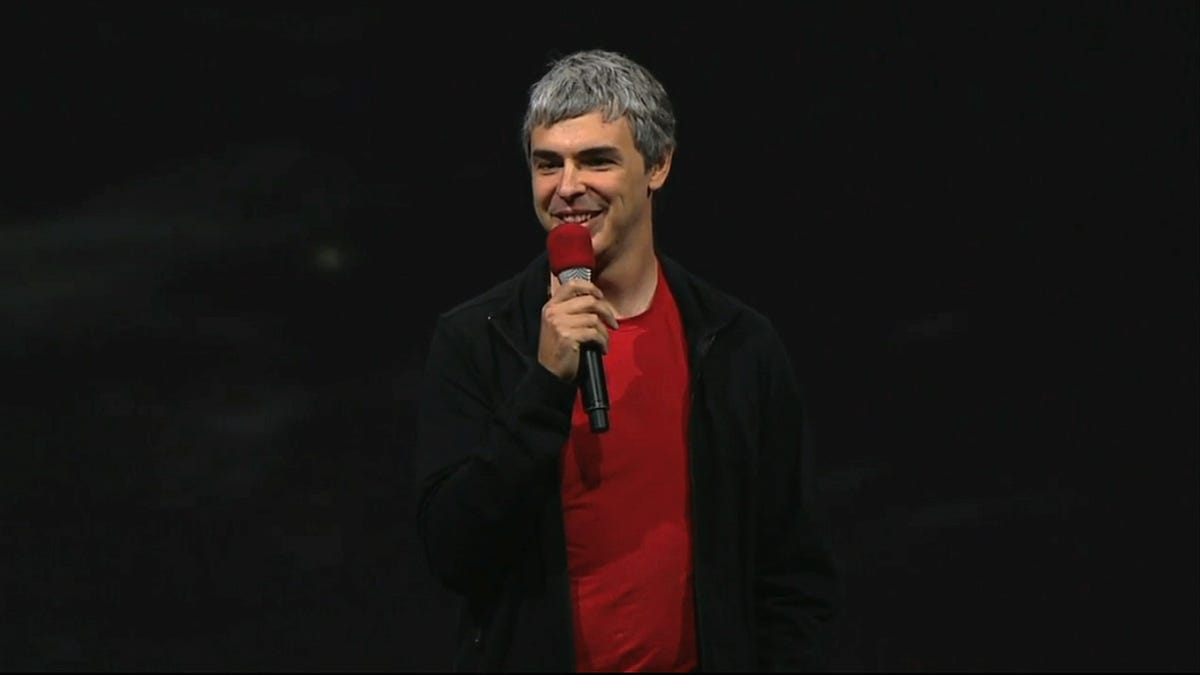Google CEO on NSA spy program: We're definitely not involved
Google co-founder's statement raises possibility that news organizations misinterpreted an apparently leaked National Security Agency document about a PRISM surveillance program.

Google CEO Larry Page has flatly denied involvement in a secret spy program operated by the National Security Agency, calling into question recent news reports that alleged the company gave spooks a backdoor into its servers.
Page said in a statement on the company's official blog today, which we're reproducing in full:
You may be aware of press reports alleging that Internet companies have joined a secret U.S. government program called PRISM to give the National Security Agency direct access to our servers. As Google's CEO and Chief Legal Officer, we wanted you to have the facts.
First, we have not joined any program that would give the U.S. government--or any other government--direct access to our servers. Indeed, the U.S. government does not have direct access or a "back door" to the information stored in our data centers. We had not heard of a program called PRISM until yesterday.
Second, we provide user data to governments only in accordance with the law. Our legal team reviews each and every request, and frequently pushes back when requests are overly broad or don't follow the correct process. Press reports that suggest that Google is providing open-ended access to our users' data are false, period. Until this week's reports, we had never heard of the broad type of order that Verizon received--an order that appears to have required them to hand over millions of users' call records. We were very surprised to learn that such broad orders exist. Any suggestion that Google is disclosing information about our users' Internet activity on such a scale is completely false.
Finally, this episode confirms what we have long believed--there needs to be a more transparent approach. Google has worked hard, within the confines of the current laws, to be open about the data requests we receive. We post this information on our Transparency Report whenever possible. We were the first company to do this. And, of course, we understand that the U.S. and other governments need to take action to protect their citizens' safety--including sometimes by using surveillance. But the level of secrecy around the current legal procedures undermines the freedoms we all cherish.
Google's statement was also signed by David Drummond, the company's top legal officer, who oversees the entire legal department.
PRISM gives the federal government surreptitious access to customer information held by Microsoft, Yahoo, Apple, Google, Facebook, and other Internet companies, according to reports from the Washington Post and The Guardian newspapers yesterday.
The program, code-named PRISM, allegedly allows NSA analysts to peruse exabytes of companies' confidential user data by typing in search terms. PRISM reports have been used in 1,477 items in President Obama's daily briefing last year, according to an internal presentation to the NSA's Signals Intelligence Directorate that the newspapers obtained.
Those allegations about companies' participation in PRISM remain unconfirmed, and the companies listed in the supposed presentation have denied any participation. Today's statement from Page, Google's co-founder, is the most detailed to date -- and, crucially, comes from someone who would be in a position to know or investigate rather than an unnamed corporate spokesman who would not be.
By contrast, a report from The Guardian on Wednesday about Verizon participating in an NSA surveillance program has been confirmed. Sen. Dianne Feinstein, a California Democrat who chairs the intelligence committee, said it's been going on for at least six years, and Sen. Ron Wyden, an Oregon Democrat who serves on that committee, said it's what alarmed him.
James Clapper, the director of national intelligence, released a statement last night saying the Guardian and Post articles about PRISM "contain numerous inaccuracies."
Clapper's statement didn't confirm or deny any NSA activity. He said only that the articles "refer to collection of communications pursuant to Section 702 of the Foreign Intelligence Surveillance Act," and that any such collection is legal.
Separately, Mike Yang, Google's deputy general counsel until less than a year ago, said the allegations of the company's involvement in PRISM are not credible. Yang, now at Pinterest, previously oversaw precisely the Google products that the NSA would have been interested in and said on Twitter yesterday: "I don't believe it."
Last updated at 1:45 p.m. PT

